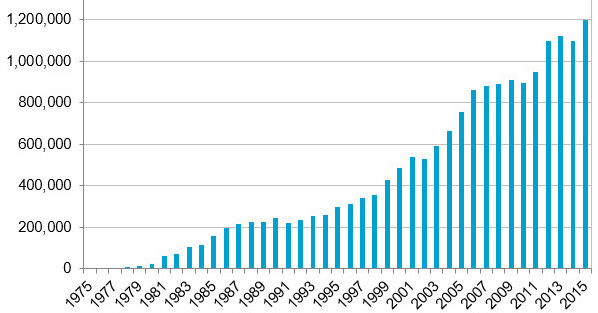Calling All Hackers – Our Endangered Wildlife Needs You!
All around the world, forests and other ecosystems are falling silent — their wildlife populations having been decimated by illegal hunting and wildlife trading.
The Internet is a central part of this killing ground — with much of the illegal trade happening online. If you know your way around the Net, how about using your talents to combat the slaughter of rare and spectacular species?
Massive Trade
The trade in illegal wildlife and wildlife parts is massive — estimated to be worth over $23 billion per year, making it one of the most profitable criminal enterprises in the world.
This trade involves far more than elephant tusks and rhino horns. It also impacts thousands of other species including big cats, hornbills, orangutans, gorillas, songbirds, sharks, lizards, frogs, and rare plants such as orchids.
For instance, a recent report by the wildlife group TRAFFIC found 80 species openly for sale on Facebook in Peninsular Malaysia. More than 90 percent of those species are legally protected by Malaysian law, and yet they’re being bought and sold freely online.
Much of the global trade in wildlife is driven by high demand from Asia. In recent months a shipment apprehended in Hong Kong contained remains of nearly 14,000 slaughtered pangolins. In the Philippines, over 1,500 rare turtles were seized in four suitcases at Manila Airport. In Thailand, criminals were recently arrested with endangered tiger remains worth $20,000.
Death for Sale
Most countries have signed up to CITES—the Convention on International Trade in Endangered Species—which makes it illegal to trade in imperiled species. But the already-massive black trade just keeps growing. Why?
Annual number of illegal wildlife transactions as estimated by CITES.
As we all know, the Internet has transformed global markets — allowing consumers to buy almost anything anywhere, while remaining relatively anonymous and easily communicating across territorial borders.
Most of the illegal wildlife trade is happening right before our eyes — on legitimate internet-auction sites and social-media apps. Internet-savvy people could play a tremendous role by making the tech companies that own these sites aware of the illegal trading—and pressuring them to shut them down.
Most tech companies are willing to help. For example, the giant online trader Alibaba recently signed an agreement with TRAFFIC pledging zero tolerance of the illegal wildlife trade.
Another strategy is to disrupt the tricks that illegal traders use to subvert the law. One of the commonest strategies is the the use of code words. For example, a recent study found 19 different codewords being used to sell illegal ivory in Europe.
Another study of four major eBay sites found illegal wildlife items were mostly identified with just six code words. In theory, this should make it easier for hackers to identify the traders and help shut down their websites.
Heroic Hackers?
ALERT is calling on the world’s hacker and computer-keen communities to attack illegal wildlife trading — because the black trade is growing so fast, and because the Internet is so integral to its operation.
This could seriously hurt the illegal traders, who are often very difficult to prosecute directly. To be charged, they must first be caught red-handed with protected species in their possession. And even if convicted, the penalties for their crimes in many nations are often little more than a slap on the wrist.
But there’s a weak link in the traders’ strategy — they need the Internet to connect with their buyers. We don’t have to stop their trade entirely — just throw sand in their gears often enough that it becomes harder and less profitable.
That will force many traders out of business. Others might be driven onto the Dark Web—where encryption and a lack of searchability is the norm — but that would hugely diminish their trade, as the Dark Web is poorly understood and avoided by most users. There’s virtually no illegal wildlife trading on the Dark Web.
Following the horrific massacre in Christchurch, New Zealand, there’s been a giant push underway to get tech companies around the world to combat terrorist activities—to make it harder for terrorists to communicate and publicize their heinous attacks online.
This is hugely admirable. We need the same kind of resolute effort to fight the daily devastation of nature. Heroic hackers could help us save many of our most charismatic and imperiled species.





